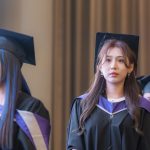Master of Arts Digital Media
Duration:
AWARDED BY:
- London Met Overview
- Programme Overview
- Programme Details
- Entry Requirements
- Assessment and Grading Criteria
Brand statement
London Metropolitan University’s mission is to transform lives through the power of education – and it does that by welcoming students from all kinds of backgrounds and supporting them to achieve success. Each and every one of them belongs there and uniquely contributes to the university and the city around them. They are The Real London. This is The Real London.
Overview:
Based in one of the world’s most exciting capital cities, London Metropolitan University is home to an inclusive community of inspiring and determined learners, teachers and innovative thinkers.
The University’s mission is to transform lives through the power of education – and it does that by welcoming students from all kinds of backgrounds and supporting them to achieve success. Each and every one of them belongs there and uniquely contributes to the university and the city around them. They are The Real London. This is The Real London.
London Met’s campuses are based in central London and offer students the excitement of the capital at their fingertips. London is an exciting international city with something for everyone. Whatever their course, students find inspiration in London’s wealth of culture, industries, innovation and heritage.
High-quality teaching is at the heart of the experience offered to students at London Met and the university is ranked ninth in the UK for teaching quality by The Times and Sunday Times Good University Guide 2024, as well as 10th for student experience.
Working with partners
London Met works closely with a number of collaborative partners both in the UK and overseas to deliver courses that lead to a university award. These relationships give the University the opportunity to enhance its academic offering and provide the best possible learning experience to a wider audience.
Working with Stanfort Academy: Franchised Agreement
London Metropolitan University (London Met) authorises and approves Stanfort Academy to deliver and assess part or all of the course. This course is also taught and assessed at London Met’s main campus in London, United Kingdom. London Met holds direct responsibility for quality assurance, curriculum content, and the teaching, learning and assessment strategy.
PROGRAMME AIM
(Awarded by London Metropolitan University, UK)-
The MA Digital Media programme aims to equip students with the ability to design socio-technical systems that prioritise user experience and usability, while applying relevant management and business practices, including the evaluation of economic and commercial risks. Students gain an understanding of the interconnectedness of digital media texts and contexts, exploring how technological and social changes shape communicative, cultural, and aesthetic practices. They develop personal practice across pre-production, production, distribution, circulation, reception, and use, while adhering to legal, ethical, and regulatory frameworks such as intellectual property rights.
PROGRAMME OBJECTIVES
- To develop expertise, competencies and awareness in the area of digital media technologies and applications appropriate to leadership in digital media.
- To equip students with the capacity to draw upon a range of skills in digital media design, production and management
- To further develop skills in research, evaluation and critical analysis through study of the role of digital media within social, economic and cultural contexts
Module
- SM7007SR - Principles of Digital Media This module will provide students with a detailed understanding of the essential changes new media bring about to society and culture; it will introduce them to the principles constituting new media functionality and will raise awareness of the operative structures new media enact and work through. This module will also help students develop a concept for and produce a new media project.
- SM7102SR - Digital Media Project Management This module develops professional skills in managing digital media projects, including project planning, team management, production lifecycle, asset management, and legal considerations. Students will critically evaluate best practices, manage all stages of digital media production, and research, produce, and implement effective solutions in digital media project management.
- SM7031SR - Digital Video Production This module introduces students to digital video production, offering both beginners and those with some experience the opportunity to create short documentaries or promotional videos. Students will research, pitch, and develop proposals in line with industry standards and legal frameworks, while gaining insight into the commissioning process and ethical filmmaking practices. Through screenings, discussions, and practical work, they will explore documentary genres, techniques, and key industry figures, supported by professional input.
- SM7103SR - Digital Media Strategy and Consultancy This module examines digital media technologies and their applications in business and society. Students will explore best practices in digital media consultancy, develop strategies for client needs, and evaluate current and emerging trends in the industry. The module emphasizes producing practical e-solutions tailored to specific client requirements.
- SM7107SR - Web Design This module introduces students to internet publishing and website production, focusing on usability, simplicity, and multimedia integration. Students will gain industry-ready skills in web and mobile design, learning key technical practices such as text formatting, image handling, and interactive programming. Emphasis is placed on evaluating web technologies, exploring design conventions, and analysing trends in usability, accessibility, and innovation within professional contexts.
- FC7W03SR - Work Related Learning This module enables students to gain professional experience through a short placement or work-related activity with a business, community organisation, or On-Job-Training partner. Students apply academic knowledge to real-world challenges, complete a work-related project, and reflect on their experience to enhance professional and personal development.
- SM7P02SZR - Digital Media Research Project This module equips students with advanced research skills to plan and prepare their final Digital Media Research Project. It covers research traditions in digital media, literature evaluation, methodologies, data analysis, and project planning. Students will produce a research proposal and develop the ability to manage research and development processes in digital media productions, consolidating skills in both practice-led and theoretical approaches.
Entry requirements
| Minimum Age | 20 Years | |
|---|---|---|
| Academic qualification |
|
|
| Language proficiency requirement | Any of the following:
|
|
Assessment:
London Metropolitan University (London Met) authorises and approves Stanfort Academy to deliver and assess part or all of the course. This course is also taught and assessed at London Met's main campus in London, United Kingdom. London Met holds direct responsibility for quality assurance, curriculum content, and the teaching, learning and assessment strategy.- Group Assignment, Individual Report, Business Research Report, Individual blog, Group presentation, Individual investigation report, Portfolio
Marking and grades:
Each component of assessed work is assigned a percentage mark with a pass/fail threshold at 50%. Overall average mark obtained for all modules and the dissertation, with classification thresholds for each grade of award as follows:- 70% and above: Distinction
- 60% – 69%: Merit
- 50% – 59%: Pass
- 0% – 49%: Fail



